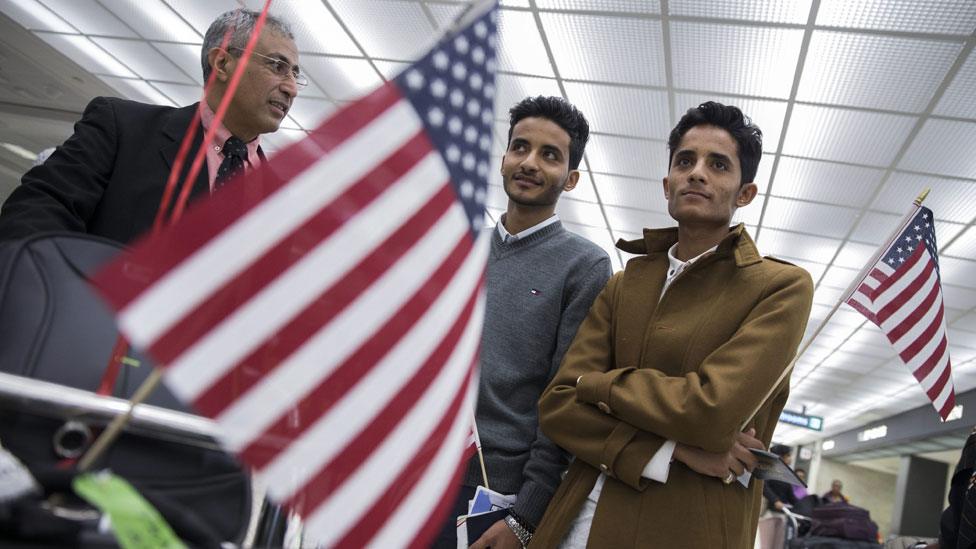What Trump team has said about Islam
- Published
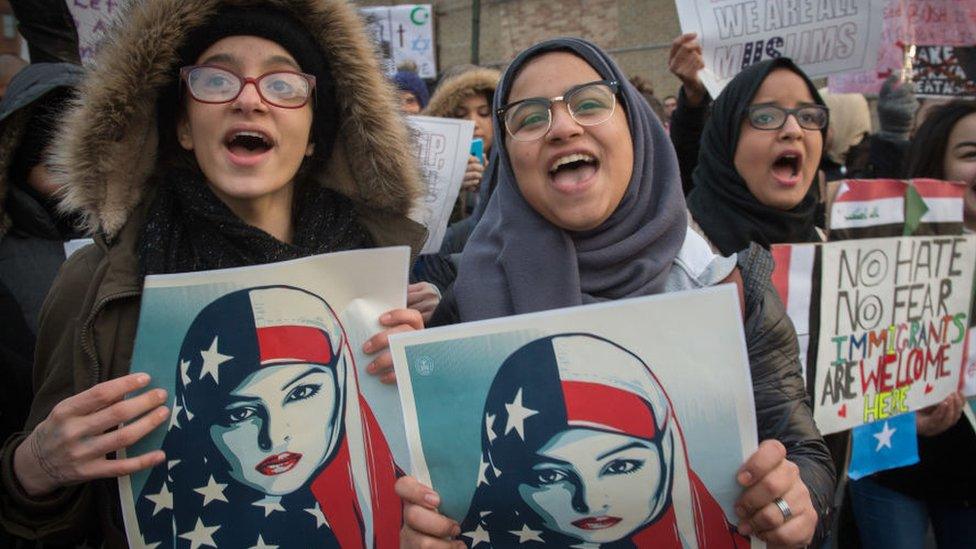
Does Donald Trump believe Islam is a religion?
It was a straightforward question, asked of Sebastian Gorka, deputy assistant to the president, during a radio interview, external last week. His answer was anything but straightforward, however.
"It's not a discussion about Islam as a religion or not a religion," he replied. "It's about radical Islamic terrorism. We are prepared to be honest about the threat. We're not going to white it out, delete it as the Obama administration did."
But is it a religion?
"I think you should ask him that question," Gorka continued. "But I would say that's really a misreading of everything he's said over the last 18 months."
A closer look at Mr Trump's comments over the last year and a half only complicates the matter, however - as do the views of the advisers closest to the new president.
Mr Trump has repeatedly warned of the dangers of "radical Islamic terrorism" - a line viewed as a direct rebuke of Barack Obama, who while president had pointedly refused to use the term.
He slammed Mr Obama and Hillary Clinton for being "founders" of the so-called Islamic State. He publicly feuded with the parents of a Muslim US soldier killed in Iraq. He has, at times, advocated a temporary ban on Muslims entering the US and instituted a "watch list" for those already in the US.
These policies and actions, critics say, reveal an anti-Islamic animus that lies at the heart of Mr Trump's politics.
"From start to finish, the 2016 presidential election vividly revealed that Islamaphobia is alive, and potent and politically resonant as ever," writes, external University of Detroit Professor Khaled Baydoun. "Scapegoating Islam and vilifying Muslims was far more than merely campaign messaging; for Donald Trump it was a winning strategy."
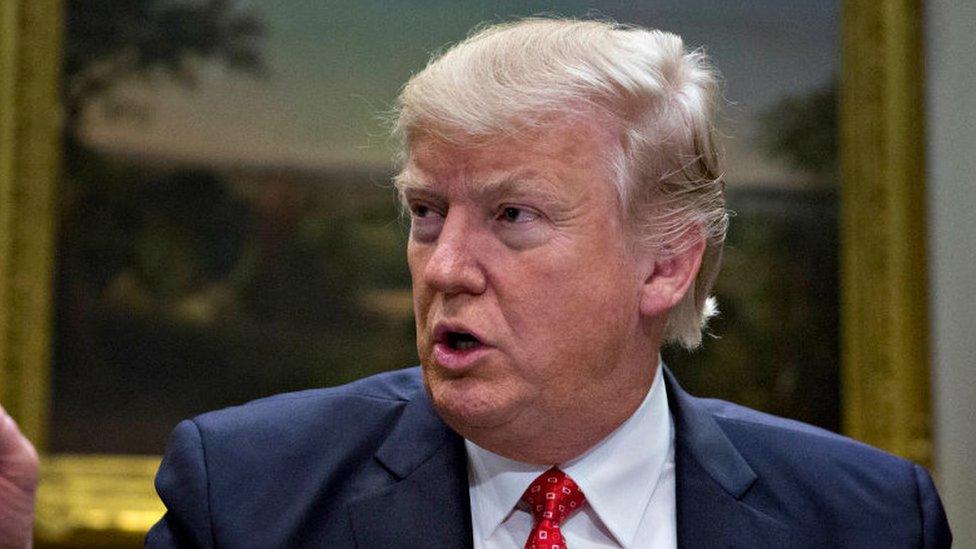
Donald Trump once said he thinks Islam hates the US
At times Mr Trump did little to dispel this conclusion.
"I think Islam hates us," he said during an interview in March 2016.
At other moments, he struck a more measured tone, drawing a distinction between the more than 1.6 billion who follow the Islamic faith and the smaller subset of "bad and dangerous people" who happen to be Muslims.
"I love the Muslims," Mr Trump said in September 2015. "I think they're great people."
If a presidential administration is a reflection of the man who sits in the Oval Office, it shouldn't be any surprise that Mr Trump's conflicted views about Muslims are also on display in the team of senior advisers that surround him.

The antagonists
In one camp are the more outspoken of Mr Trump's advisers, who echo the president's most bellicose anti-Muslim rhetoric.
They include National Security Advisor Michael Flynn, senior adviser Steve Bannon and attorney general nominee Jeff Sessions.
Mr Flynn, for instance, called Islam, external a "political ideology" that "hides behind this notion of it being a religion" - the line that prompted the pointed questions for Gorka last week.
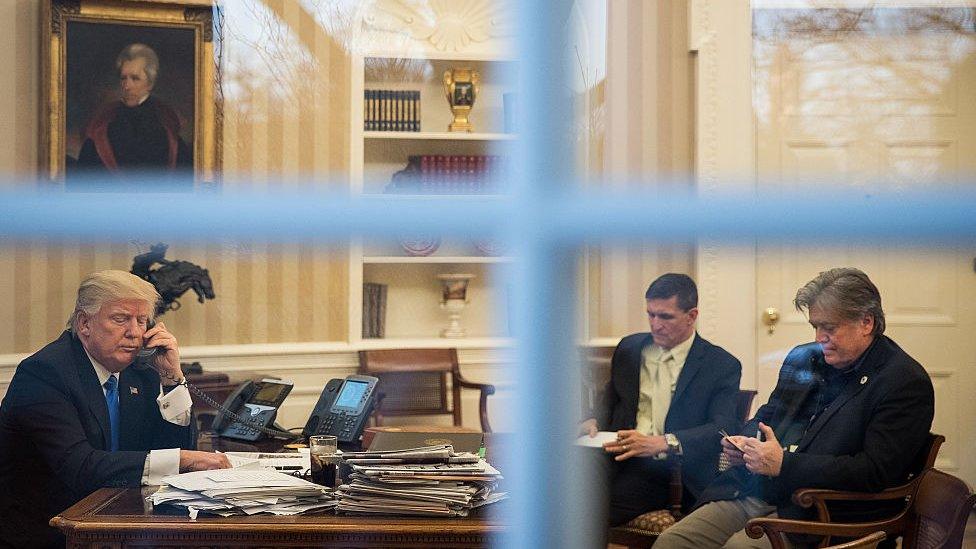
Michael Flynn (centre) and Stephen Bannon (right) both have been sharply critical of the Islamic faith
He's compared, external the religion to "a malignant cancer" and tweeted, external that a fear of Muslims is "rational".
Mr Bannon, who served as head of the nationalist media website Breitbart before taking a top position in Mr Trump's presidential campaign, called, external Islam "the most radical religion in the world" and warned that members of the faith had created "a fifth column here in the United States".
A slightly narrower view has been advanced by Mr Sessions, considered the architect of Mr Trump's immigration policies.
"We have a toxic ideology, hopefully very small within Islam; certainly most people, most Muslims don't agree with this violent, jihadist approach," he said, external. "And we need to figure out a better way to identify that."

The pragmatists
There are cooler heads in the White House, of course. Defence Secretary James Mattis, in defending the need for US alliances with the Islamic world, said jihadist groups were, external "dressed in false religious garb".
Before he joined the Trump administration, Mr Mattis was among the many Republicans - including Vice-President Mike Pence - critical of the proposed Muslim immigration ban, saying, external it was "causing us great damage right now, and it's sending shock waves through the international system".
President Trump: "It's not a Muslim ban, but we're totally prepared"
He noted during his confirmation hearings that he had fought alongside Muslim US soldiers.
White House chief of staff Reince Priebus, viewed as Bannon's chief rival among presidential advisers, has said there will be no Muslim registry - and taken a softer tone in general.
"There are some aspects of that faith that are problematic," Priebus said, external of Islam. "It certainly isn't a blanket for that faith."

A rhetorical price
The debate over the Trump White House's attitude toward Muslims is more than merely academic. In their lawsuits challenging the legality of the president's order suspending refugee resettlement and immigration from seven predominantly Muslim countries, Mr Trump's opponents have pointed to his bellicose rhetoric and that of his staff as evidence that the policy was unconstitutionally directed at Muslims.
Past presidents have gone out of their way to say their issues are not with the Islamic faith - if only to serve as a public counterbalance to their use of US military power in or against Muslim nations.
"The face of terror is not the true faith of Islam," Mr Bush said, external shortly after the 9/11 attack on the World Trade Center. "That's not what Islam is all about. Islam is peace."
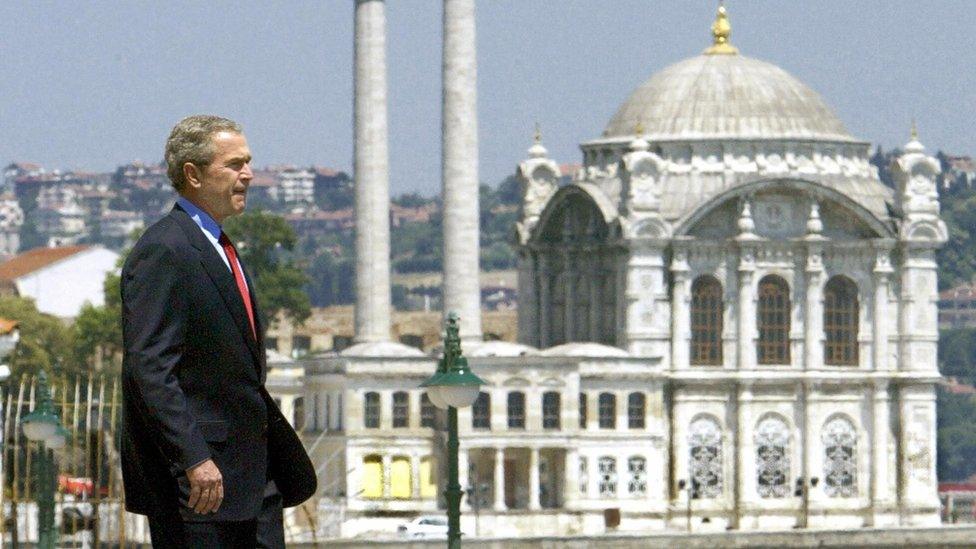
George W Bush called Islam a religion of peace while president
He would later launch invasions of Muslim countries Afghanistan and Iraq.
Mr Obama has made similar comments, noting, external that "it's very important for us to align ourselves with the 99.9 percent of Muslims who are looking for the same thing we're looking for - order, peace, prosperity".
In 2016 he ordered more than 26,000 bombs dropped on Muslim nations like Syria, Iraq, Afghanistan, Libya, Yemen, Somalia and Pakistan.
Mr Trump doesn't have the luxury of the same rhetorical cover his predecessors enjoyed. His actions as president will be coloured by his past statements and those of his advisers.
The furious reaction to his immigration order is one such example - and it almost certainly won't be the last.
- Published15 December 2018
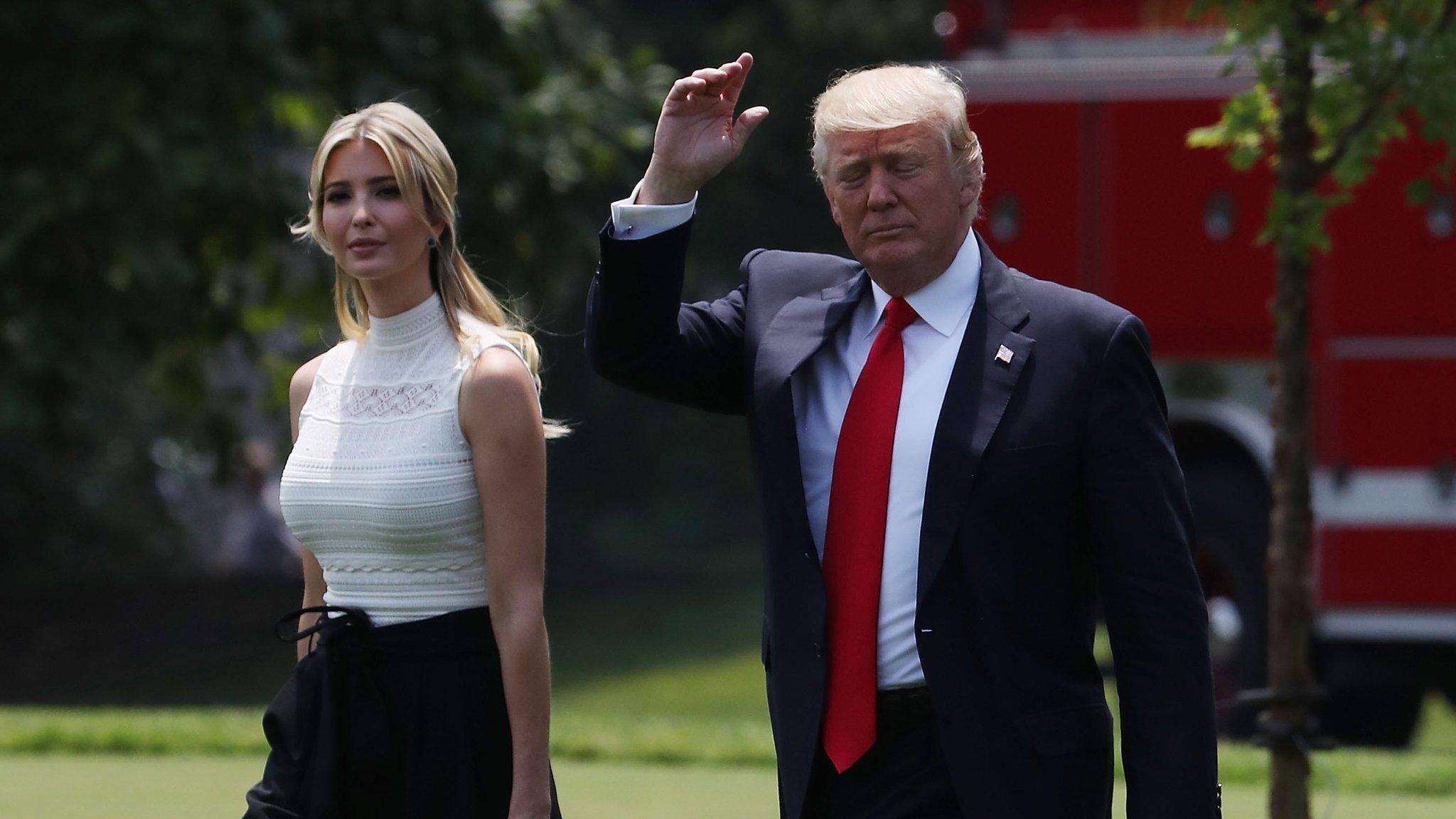
- Published31 January 2017
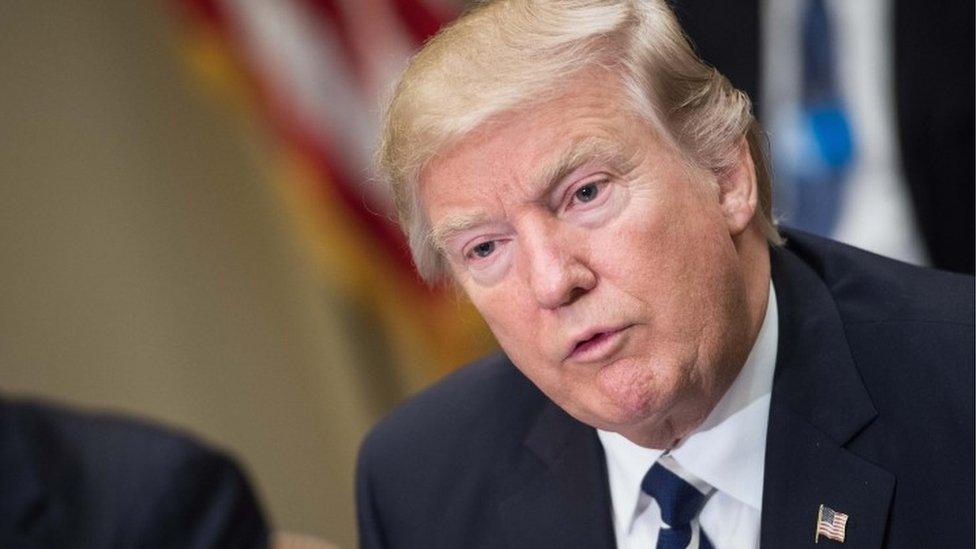
- Published7 February 2017
